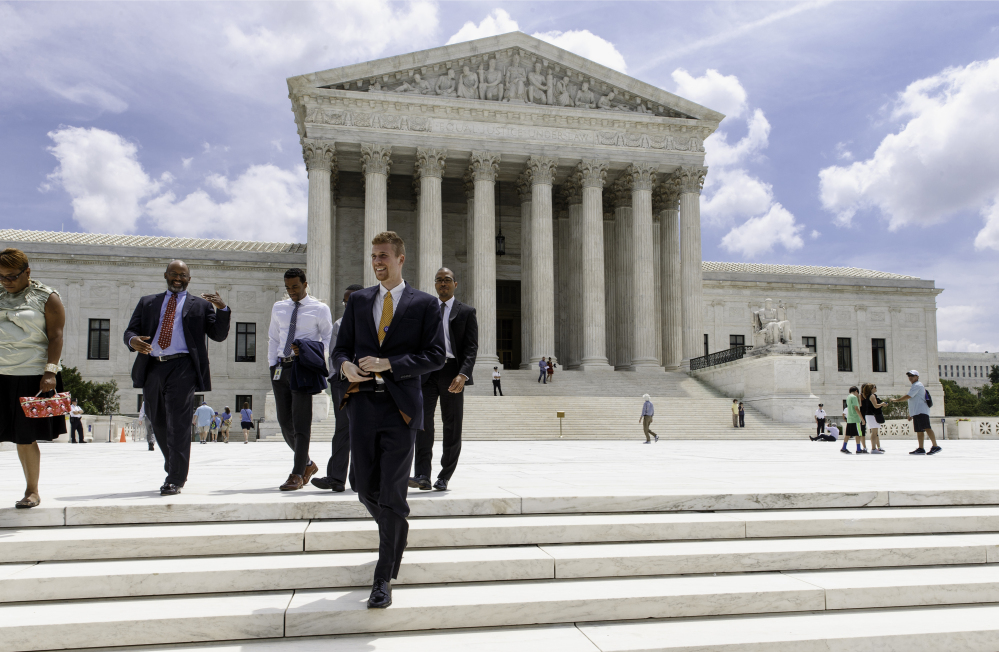Now that a narrow majority of the Supreme Court has determined that in addition to free-speech rights, some corporations can have sincerely held religious beliefs as well, we can only wonder what’s next. A corporate right to privacy? A for-profit right to bear arms?
On Monday, the court ruled that closely held for-profit corporations can be exempt from the Affordable Care Act’s reproductive health care coverage mandate if the company’s owners assert that compliance would violate their religious beliefs. That was the case with Hobby Lobby, a chain of crafts stores whose owners argued that they considered some methods of birth control to be the equivalent of abortion and they would like to decide which methods would be covered under the employee health plan.
Writing for the majority, Justice Samuel Alito attempted to draw the opinion narrowly, but the issue is unresolved. The ruling will invite more challenges from private business owners who want their religious beliefs to guide their employees’ working conditions.
It’s not clear how this court would rule on requests from business owners who want to avoid paying for vaccinations or blood transfusions, to name two items that are forbidden by some religious teachings.
What is clear, however, is that with this ruling and a ruling last week that struck down a buffer zone outside abortion clinics, the court has put women’s health issues in the center of this year’s elections. Candidates for office from state legislatures up to governor, the U.S. Senate and the U.S. House will be expected to respond to these rulings and their implications.
It’s important to note that Monday’s ruling did not address abortion, but birth control, an issue that has been about as settled in this country as anything can be.
Over the past half-century, access to birth control has been crucial in giving women the ability to enter the workforce and fight for the equality they have achieved. There were no women on the Supreme Court in 1965 when it decided Griswold v. Connecticut, striking down laws that outlawed contraceptives. Today, there are three women on the court, and it is no coincidence that they all voted against extending the religious exemption to businesses in the Hobby Lobby case.
This court’s decision could challenge state legislatures and Congress to pass laws that push the boundary farther, and it will matter who is sitting in those bodies next January.
Maine has already seen pressure on this issue. Earlier this year, Gov. LePage vetoed a bill that would have provided birth control, annual exams and family planning services to low-income women, and the House could not muster enough votes to override. The makeup of the Legislature and the occupant of the Blaine House will have an impact on what kind of women’s health agenda is advanced.
In Washington, it’s not only the creation of new laws that’s at stake, but also the makeup of the Supreme Court, since new justices need Senate approval.
Access to birth control, family planning services and safe, legal abortions are no longer rights that can be taken for granted. The Supreme Court has put the nation on notice, and we should be paying attention.
Send questions/comments to the editors.



Success. Please wait for the page to reload. If the page does not reload within 5 seconds, please refresh the page.
Enter your email and password to access comments.
Hi, to comment on stories you must . This profile is in addition to your subscription and website login.
Already have a commenting profile? .
Invalid username/password.
Please check your email to confirm and complete your registration.
Only subscribers are eligible to post comments. Please subscribe or login first for digital access. Here’s why.
Use the form below to reset your password. When you've submitted your account email, we will send an email with a reset code.